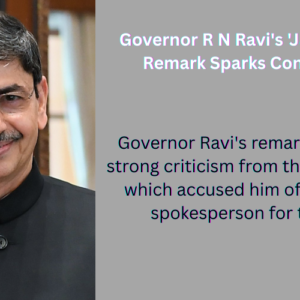The term “mind” is employed to convey a sense of caution, urging individuals to exercise care, attentiveness, or consideration toward specific matters. It serves as a prompt for others to be cautious, take notice, or pay attention to particular details, emphasizing the importance of awareness and careful consideration in various situations.
Examples:
1. Mind your manners at the dinner table.
2. Mind the gap between the train and the platform.
3. Mind your language in the workplace.
4. Mind your speed; there’s a speed limit in this zone.
5. Mind the deadline for project submissions.
6. Mind your belongings in crowded areas.
7. Mind your health; don’t forget to take breaks.
8. Mind the noise level, please.
9. Mind the pedestrians while driving through the neighborhood.
10. Mind your tone during the meeting.
11. Mind the fragile items when packing for the move.
12. Mind the security protocols when accessing confidential information.
13. Mind your posture to prevent back pain.
14. Mind your spending; stick to the budget.
15. Mind the weather forecast before planning outdoor activities.
16. Mind the privacy of others when sharing personal stories.
17. Mind the steps; the staircase is steep.
18. Mind your diet for better fitness.
19. Mind the expiration date on food products.
20. Mind the wildlife; don’t disturb the animals in the park.
Mind your words.
Minding your words” means being careful and considerate about what you say. It implies being aware of the potential impact of your words on others, choosing them thoughtfully, and avoiding language that could be offensive, hurtful, or inappropriate in a given context. It’s a reminder to speak with discretion, especially in situations where words carry significant weight or can affect relationships.
Mind your own business
“Mind your own business” is a common expression that essentially means to focus on one’s own affairs and not interfere in the matters of others. It’s often used to discourage someone from being nosy or intrusive, reminding them to stay out of someone else’s private or personal matters. This phrase is generally employed to assert a boundary and encourage individuals to respect the privacy and autonomy of others.
News in Same Category
 Transitive and Intransitive Verbs
Transitive and Intransitive Verbs
 Ask Questions Using Would You, Could You, Will You and Can You
Ask Questions Using Would You, Could You, Will You and Can You
 The term ‘mind’ to denote the act of taking care of someone or something
The term ‘mind’ to denote the act of taking care of someone or something
 He doesn’t mind, She doesn’t mind, I don’t mind
He doesn’t mind, She doesn’t mind, I don’t mind
 The Phrase “Never Mind”
The Phrase “Never Mind”
 Uses of ‘Mind’ as a Noun
Uses of ‘Mind’ as a Noun
 Uses of ‘Being’
Uses of ‘Being’
 ‘In a Nutshell’: Summarizing Complex Ideas Concisely
‘In a Nutshell’: Summarizing Complex Ideas Concisely
 Difference Between Phrase and Clause
Difference Between Phrase and Clause
 Either… or…
Either… or…
 Rather, Rather than, Rather a lot, Or rather
Rather, Rather than, Rather a lot, Or rather
 UGC opens doors for top global universities to establish campuses in India
UGC opens doors for top global universities to establish campuses in India
 JEE Advanced 2024: Key Dates and Enrollment Details Announced
JEE Advanced 2024: Key Dates and Enrollment Details Announced
 IIT Madras Launches Integrated Career Pathway Centre for Student Success
IIT Madras Launches Integrated Career Pathway Centre for Student Success
 IIM Lucknow to Soon Release CAT 2023 Answer Key
IIM Lucknow to Soon Release CAT 2023 Answer Key
 IIM Kashipur Announces Executive MBA Program for 2024, Invites Applications for EMAT-2023
IIM Kashipur Announces Executive MBA Program for 2024, Invites Applications for EMAT-2023
 ESIC Announces Examination Schedule for Group C Paramedical Posts
ESIC Announces Examination Schedule for Group C Paramedical Posts
 UKMSSB Announces Recruitment for 1455 Nursing Officer Positions: Application Process Begins on December 12
UKMSSB Announces Recruitment for 1455 Nursing Officer Positions: Application Process Begins on December 12
 NTA Extends JEE Main 2024 Registration Deadline to December 4
NTA Extends JEE Main 2024 Registration Deadline to December 4
 Symbiosis Reports Remarkable Response with Over One Lakh Registrations for SNAP 2023
Symbiosis Reports Remarkable Response with Over One Lakh Registrations for SNAP 2023















































